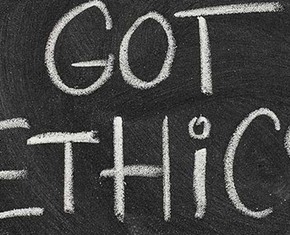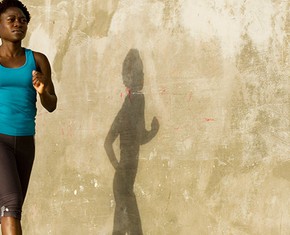The views expressed in our content reflect individual perspectives and do not represent the authoritative views of the Baha'i Faith.
I hate to see an ounce of pain on someone’s face. I hate to see a war between people for any reason. I hate to hear unkind words that stab and poke at another’s self-esteem.
I hate to see children suffer.
I hate to see the abuse and neglect of animals, let alone humans. I hate to see violent civil unrest that could be resolved through diplomacy and free and fair elections.
If I truly hate these things so much, they will motivate me to do something—to take action so that hate, the hate that causes pain, doesn’t overtake love and our common humanity.
Hate can motivate, but the object of our hate makes all the difference. The Baha’i teachings point out this fundamental truth:
In the innate nature of things there is no evil—all is good. This applies even to certain apparently blameworthy attributes and dispositions which seem inherent in some people, but which are not in reality reprehensible. For example, you can see in a nursing child, from the beginning of its life, the signs of greed, of anger, and of ill temper; and so it might be argued that good and evil are innate in the reality of man, and that this is contrary to the pure goodness of the innate nature and of creation. The answer is that greed, which is to demand ever more, is a praiseworthy quality provided that it is displayed under the right circumstances. Thus, should a person show greed in acquiring science and knowledge, or in the exercise of compassion, high-mindedness and justice, this would be most praiseworthy. And should he direct his anger and wrath against the bloodthirsty tyrants who are like ferocious beasts, this too would be most praiseworthy. But should he display these qualities under other conditions, this would be deserving of blame. – Abdu’l-Baha, Some Answered Questions, newly revised edition, pp. 248-249.
Do you hate injustice? Join the club. Researchers have found that hate often arises to curb perceived infractions of cultural norms. It may even help hold societies together by punishing those seen as breaking the social contract. Altruistic punishment flares in the face of an inequitable allocation of resources or a transgression of cultural traditions and norms—all threats to social coherence.
This brings us to the question: What should we hate?
According to the Baha’i teachings, we should hate discord. Here’s just one example, cited by Abdu’l-Baha about his father Baha’u’llah’s teachings:
His third teaching is that religion is a mighty stronghold, but that it must engender love, not malevolence and hate. Should it lead to malice, spite, and hate, it is of no value at all. For religion is a remedy, and if the remedy brings on disease, then put it aside. Again, as to religious, racial, national and political bias: all these prejudices strike at the very root of human life; one and all they beget bloodshed, and the ruination of the world. So long as these prejudices survive, there will be continuous and fearsome wars. – Selections from the Writings of Abdu’l-Baha, p. 249.
So we need to hate malice, hate spite, hate hate and hate prejudice. When we hate disunity and discord, we can strive to benefit every human being, to do some good where and when and how we can.
In Baha’u’llah’s Tablet of the True Seeker, he prescribed a path we can take to find inner and outer peace and unity by following God’s prescription for how to lead our lives. The first step on that path is to cleanse our heart:
O My brother! When a true seeker determineth to take the step of search in the path leading unto the knowledge of the Ancient of Days, he must, before all else, cleanse his heart, which is the seat of the revelation of the inner mysteries of God, from the obscuring dust of all acquired knowledge, and the allusions of the embodiments of satanic fancy. He must purge his breast, which is the sanctuary of the abiding love of the Beloved, of every defilement, and sanctify his soul from all that pertaineth to water and clay, from all shadowy and ephemeral attachments. He must so cleanse his heart that no remnant of either love or hate may linger therein, lest that love blindly incline him to error, or that hate repel him away from the truth. Even as thou dost witness in this Day how most of the people, because of such love and hate, are bereft of the immortal Face, have strayed far from the Embodiments of the Divine mysteries, and, shepherdless, are roaming through the wilderness of oblivion and error. – Gleanings from the Writings of Baha’u’llah, pp. 192-193.
At times, though, hating those things we want to most abolish from the world can blind us to the source of love and unity. The purpose of hating injustice, for example, is to bring about justice. The purpose of hating war is to bring about peace.
When we recognize that fact, we can direct our strong feelings for alleviating war and injustice toward bringing about unity and camaraderie, to work for not against, to align our actions with the positive, not the negative.
Martin Luther King Jr. said: “Darkness cannot drive out darkness; only light can do that. Hate cannot drive out hate; only love can do that.”
Balance is needed. Wisdom is needed. Action is needed. May you find all three.
















Comments
Sign in or create an account
Continue with Googleor